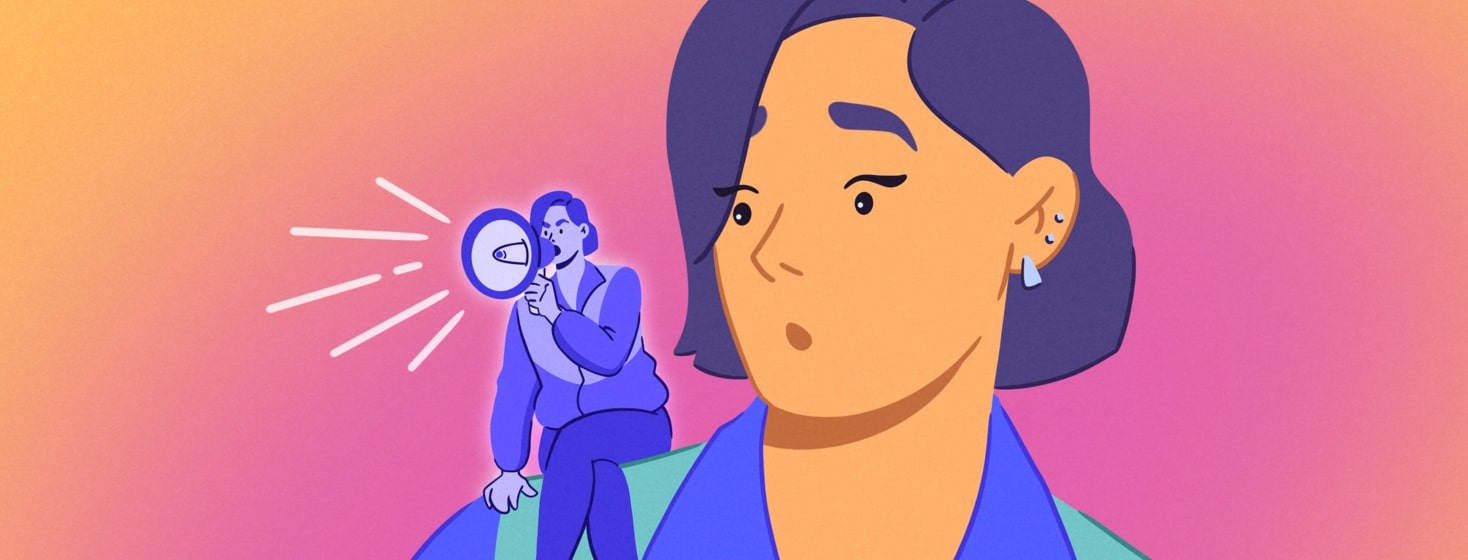Myths About Epilepsy vs. Facts About Epilepsy
Over the years, I've learned that advocating for epilepsy is crucial to finding a cure. When I was younger, I didn't realize there were so many misconceptions about seizure disorders.
The only thing I knew was my own misunderstanding at the time – that all seizures make you convulse. But my first neurologist set me straight by explaining that I had absence seizures, which were more like "spacing out" spells without any convulsions.
Breaking down stigmatizing myths
As I got more involved in advocating, I discovered various misconceptions and myths held by people with and without seizure disorders.
It took me a while to learn about these because whenever I talked about my epilepsy, I'd quickly move on. Not because I was ashamed, but because the looks of pity from family and friends made me uncomfortable.
But let's talk about why advocacy is so important through 6 common myths – and then the actual truth.1
Epilepsy awareness: myths vs. facts
Restraining someone having a seizure
Myth: Seizure first aid involves restraining someone and putting something in their mouth, and everyone who experiences a seizure must be taken to the hospital immediately.
Truth: Both of these myths are incorrect. Proper seizure first aid doesn't involve restraining or sticking things in someone's mouth. It's essential to follow the right steps, which you can find in this seizure first aid article.
As for going to the hospital, it depends on the situation. Not everyone who experiences a seizure requires hospitalization. The article mentioned earlier provides more specific guidelines on when to seek medical help.
Mental illness
Myth: Epilepsy is a mental illness.
Truth: According to Webster's Dictionary, epilepsy is all about abnormal electrical discharges in the brain causing sudden, brief episodes of altered consciousness, involuntary movements, or convulsions.2
It's not a mental illness.I remember a close friend with bipolar disorder who thought we both had mental illnesses due to our different behaviors. But their doctor explained the difference: mine refers to brain activity, versus their condition is about shifts in mood.3
Seizures never go away
Myth: If you have a seizure condition, you'll always have one.
Truth: While there's no cure yet, some kids outgrow their seizure condition, and around 70% of people find seizure freedom with anti-seizure meds.1
There are other treatment options, too, like neuromodulation devices, surgery, and diet changes. In my case, anti-seizure meds helped me become seizure-free in my early 20s.
People with epilepsy can't drive
Myth: If you have epilepsy, you can't drive.
Truth: It's not entirely true, but there's some truth to it. The rules vary from state to state. Once you've been seizure-free for a while (even with meds), you might be able to drive. It took me until my early 20s to finally get behind the wheel, but parallel parking is still a struggle!
What epilepsy "looks" like
Myth: Epilepsy only affects young people.
Truth: Nope, epilepsy doesn't discriminate. It can happen to anyone, regardless of age, gender, or background.
Flashing lights
Myth: Flashing lights are the biggest seizure trigger.
Truth: For some folks, sure, but the "light sensitivity" thing isn’t the case for everyone with epilepsy. Only bout 3 in 100 people with epilepsy have photosensitive epilepsy.
Different people have different triggers. I'm sensitive to flashing lights, but sleep deprivation is also a major trigger for me, too. That's why I had sleep deprivation EEGs to monitor my epilepsy. Oh, and I found out I have a gluten allergy, too! Going gluten-free has made me feel amazing!
Share the facts about epilepsy
These myths are just the tip of the iceberg. That's why spreading awareness is super important. People need to understand that we're just like them, and realistically, they could become just like us.
Epilepsy also isn't something to fear or pity. I'm grateful to have learned so much about this topic and to help clear up misconceptions for others – and even myself when I come across new myths!
Are there any other myths or misconceptions that you have had to explain to others? And always remember, you are not alone!

Join the conversation